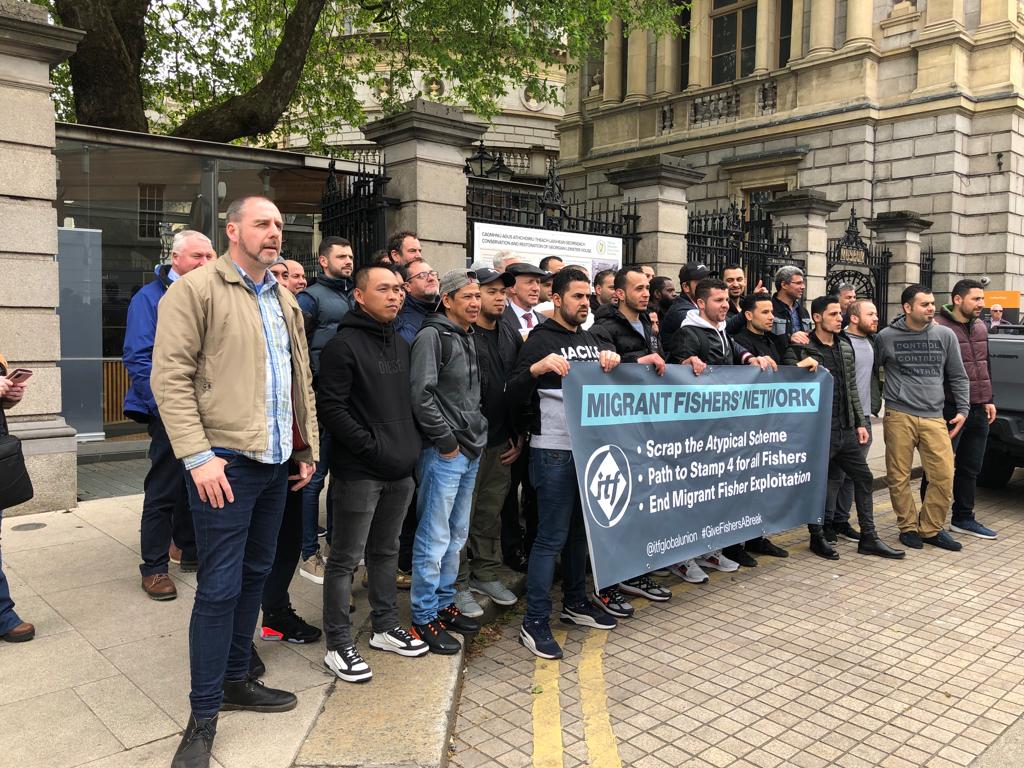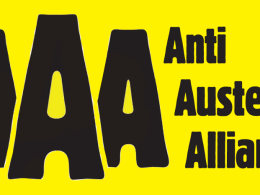By Michael O’Brien
The discontent among Irish fishing vessel owners regarding the quota allocated to foreign-flagged vessels operating in Irish waters under the Common Fisheries Policy gets a wide airing in the Irish media and social media. However, of far less concern to them and the authorities in Ireland is the often slave-like conditions of predominantly Indonesian fishers working on those same vessels flagged to other EU member states.
Numerous cases have come to light this year:
In January, the Irish Navy detained two Spanish-owned German-flagged vessels, the Ortegal Tres and Persosa Dos. The skippers of both vessels have since been charged for dozens of fisheries and maritime offences. However, they face no charges for the scandalous pay and conditions of the Indonesian crew.
In the case of the Persosa Dos, the German flag state authorities had on file false contracts claiming that the fishers were on €2,000 per month. The reality was that the fishers themselves were issued with contracts that had them on half that amount.
Low hours, low pay
In the case of the Ortegal Tres, the fishers were on €800 per month for an 80-hour week. In both instances, the question was posed as to why they were not on the German minimum wage of €13 per hour. This became the topic of a half-hour-long ‘Prime Time Investigates’ style documentary broadcast on German national TV, culminating in the journalist confronting politicians in the Bundestag as to why exemptions to the minimum wage laws are being permitted on German-flagged fishing vessels.
In June, a contract of an Indonesian fisher working on a Portuguese-owned Belgian-flagged vessel, the O.136 Aegir, fishing exclusively in Irish waters came to light after it docked in Dunmore East, Co Waterford. Rather than being paid the Belgian minimum salary of €1,955 per month, he was instead on €760.
The Belgian labour inspectorate agrees that this is illegal but cannot commit to ensuring the fisher and his crewmates are properly paid because the boat has only ever docked in Belgium once and may not do so again for the foreseeable.
Unbearable conditions of work
In July, a number of Indonesian fishers working on a French-owned and flagged vessel, the Yannick, jumped ship in Dingle, Co Kerry, unable to endure the onboard conditions. In one case, this included not being paid for the first three months on board and not being permitted to obtain medical attention when he suffered a hand injury. Again, the matter is with the French authorities.
In all of the above instances, the fishers testified to the International Transport Workers’ Federation (ITF) having had massive fees illegally extracted from them by the crewing agents in Indonesia, leaving them in debt bondage at the start of their contracts.
Irish state: No inclination to act
If a comprehensive inspection of all vessels fishing in Irish waters were performed, multiples of the above cases would be uncovered. However, neither the Irish authorities, such as the Workplace Relations Commission and Marine Survey Office, nor their equivalents in the flag states across Europe have the inclination or systems in place to do this or adequately respond to the type of abuses described here.
What remedies have been achieved have primarily depended on the ITF, its affiliated unions, but most importantly, the informal solidarity networks among the Indonesian fishing diaspora, including those Indonesians who work on Irish flagged vessels who have practically aided their compatriots, including putting them in touch with the ITF.
Trade union action needed
This is a Europe-wide scandal, with other cases of Indonesians being paid €500 to €600 per month on Italian-owned and flagged vessels in the Mediterranean being taken up by the ITF’s local affiliate there.
A bigger commitment from the official trade union movement in Europe to organise migrant fishers is needed to eliminate modern slavery on our shores, as the national and EU authorities are clearly not up to it.












